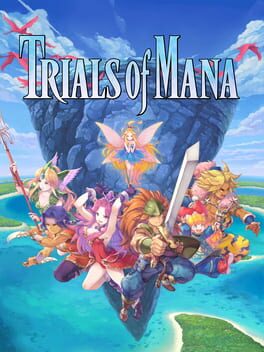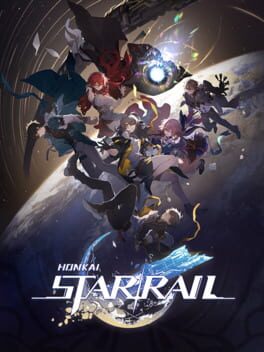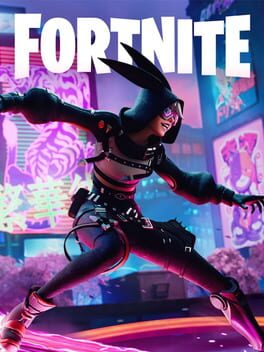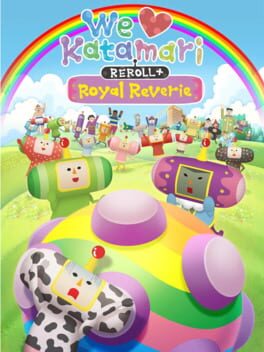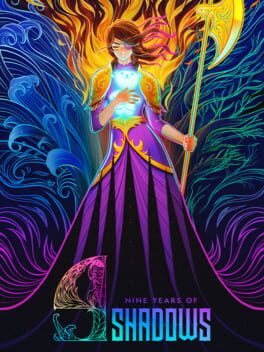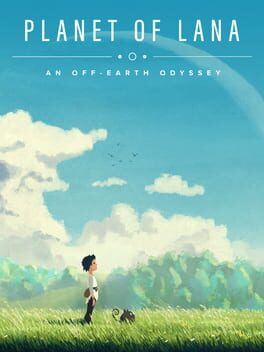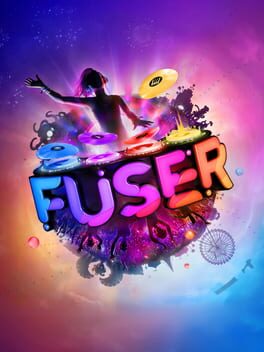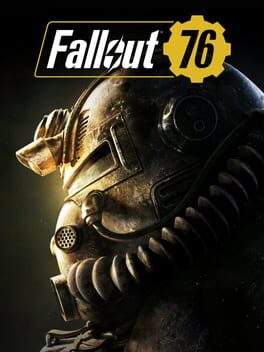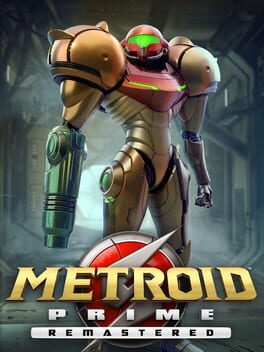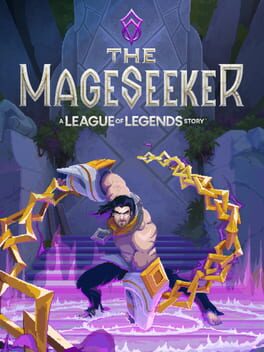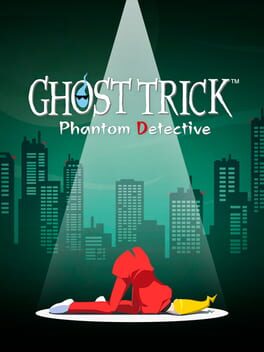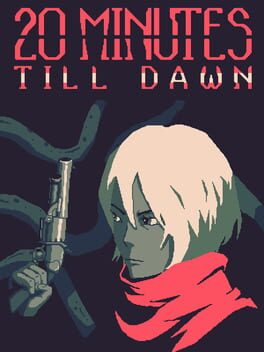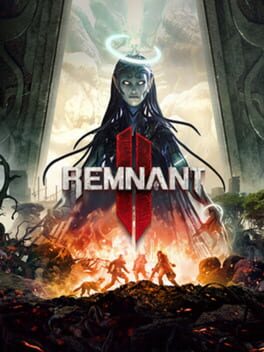HGRezende
2020
The best description I can give to Trials of Mana is: it's alright. It plays alright, it looks alright, nothing really stands out, for better or for worse.
I think most importantly, this is still an SNES game, just with a new 3D shell. I think playing it with this in mind you can enjoy it more, but even still, I think the systems here are not as great as other older RPGs.
There is also some confusing things like when you save a mana spirit and the game says you unlock their power, but in reality you'll only have mana powers way later when you can change classes for the first time.
Progression for classes, items and skills also don't feel exciting. I can't say for sure because I haven't played the original, but it feels like sticking too much to the source material might have prevented this remake from reaching its full potential.
I think most importantly, this is still an SNES game, just with a new 3D shell. I think playing it with this in mind you can enjoy it more, but even still, I think the systems here are not as great as other older RPGs.
There is also some confusing things like when you save a mana spirit and the game says you unlock their power, but in reality you'll only have mana powers way later when you can change classes for the first time.
Progression for classes, items and skills also don't feel exciting. I can't say for sure because I haven't played the original, but it feels like sticking too much to the source material might have prevented this remake from reaching its full potential.
2023
These are first impressions from a game meant to last for a while, after finishing all the story content available at the moment and feeling how progression flows, my perception will surely change a lot as new updates arrive, but this is how I feel at this moment.
First and foremost, this is a gacha RPG, if you don't like the main idea of pulling characters and getting a lot of bars to put a lot of resources in to progress, this won't change your mind.
Having said that, this is an incredibly polished experience, with a nice and intriguing story so far. The battle system might not be superficially deep, with characters having just two skills and an ultimate, but I think theory crafting with team compositions is a lot of fun. At the same time considering you have to pull to get new options to build teams, it can be somewhat boring after you figured your team out and won't have any new possibilities for a while.
The greatest detail for me when it comes to Star Rail is just how little time it requires to complete the "daily grind". You can have your long sessions going through the missions or checking out Simulated Universe, but when you are just burning your stamina it is done really quickly and with very few limitations.
So far I'm very invested in the story, and curious about the future, the time commitment is somewhat low so I don't feel like it is wasting my time, and I'm having a lot of fun building my characters.
First and foremost, this is a gacha RPG, if you don't like the main idea of pulling characters and getting a lot of bars to put a lot of resources in to progress, this won't change your mind.
Having said that, this is an incredibly polished experience, with a nice and intriguing story so far. The battle system might not be superficially deep, with characters having just two skills and an ultimate, but I think theory crafting with team compositions is a lot of fun. At the same time considering you have to pull to get new options to build teams, it can be somewhat boring after you figured your team out and won't have any new possibilities for a while.
The greatest detail for me when it comes to Star Rail is just how little time it requires to complete the "daily grind". You can have your long sessions going through the missions or checking out Simulated Universe, but when you are just burning your stamina it is done really quickly and with very few limitations.
So far I'm very invested in the story, and curious about the future, the time commitment is somewhat low so I don't feel like it is wasting my time, and I'm having a lot of fun building my characters.
Good season, I don't have any remarkable moments or updates that left me really excited, but overall it wasn't bad, just not exactly fresh. Maybe a bit too many mythic collabs active at the same time, and some clear downgrade with the modern bikes early in the season, but dashing with the swords felt cool.
I'm more of an old school Zelda fan, Breath of the Wild didn't win me over much, and I'm not sure I prefer this over classic, but Tears of the Kingdom has been an incredible experience, even if shrines and durability are still really not my thing.
I think with just a few tweaks, Tears managed to open so many possibilities on its sandbox that shrines don't carry the burden of being one of the few interesting things to pursue in the world. Caves and the sky islands provide other diversions with their own unique rewards, it feels like I have more to experiment and distract myself.
When it comes to items, fusing increases your stockpile of good weapons and make durability less of an issue. The same is true to arrows which are now more plentiful and can be charged with multiple functions through fusing simple items. Building with ultrahand provides a lot of interesting uses for puzzles, and allow for an even higher degree of player experimentation.
Without being too spoilery, I enjoy the main setpieces in this game better than the Divine Beasts, I still think they are far from rivaling good classic dungeons, but multiple factors certain elevate them in my perspective. As for the shrines they are really my main disappointment in this game, it feels like they never leave the "tutorial" territory. Exploration is by far the most interesting aspect in this new era of Zelda, these puzzles in shrines feel like a relic of a past that doesn't have a place here, not at this quantity and quality at least.
Tears of the Kingdom feels like an upgrade to Breath of the Wild ideas in most every front, from progression to gameplay systems. It is the new style of game Zelda is now, with a more robust understanding of what makes it interesting. It is an outstanding technical achievement not only for making this run on Switch, but for having so many complex systems interact with each other. I think for all these elements coming together, it certainly deserves to be called a masterpiece.
I think with just a few tweaks, Tears managed to open so many possibilities on its sandbox that shrines don't carry the burden of being one of the few interesting things to pursue in the world. Caves and the sky islands provide other diversions with their own unique rewards, it feels like I have more to experiment and distract myself.
When it comes to items, fusing increases your stockpile of good weapons and make durability less of an issue. The same is true to arrows which are now more plentiful and can be charged with multiple functions through fusing simple items. Building with ultrahand provides a lot of interesting uses for puzzles, and allow for an even higher degree of player experimentation.
Without being too spoilery, I enjoy the main setpieces in this game better than the Divine Beasts, I still think they are far from rivaling good classic dungeons, but multiple factors certain elevate them in my perspective. As for the shrines they are really my main disappointment in this game, it feels like they never leave the "tutorial" territory. Exploration is by far the most interesting aspect in this new era of Zelda, these puzzles in shrines feel like a relic of a past that doesn't have a place here, not at this quantity and quality at least.
Tears of the Kingdom feels like an upgrade to Breath of the Wild ideas in most every front, from progression to gameplay systems. It is the new style of game Zelda is now, with a more robust understanding of what makes it interesting. It is an outstanding technical achievement not only for making this run on Switch, but for having so many complex systems interact with each other. I think for all these elements coming together, it certainly deserves to be called a masterpiece.
My first Katamari game was Beautiful Katamari on the Xbox 360, and I had never played the originals until the remasters, and while the idea between them basically stays the same, I can't help but feel like the jump in hardware let them realize the vision of what the game was meant to be.
The idea behind Katamari is fun regardless, and the interactions between the King and the fans are hilarious, so the game is still loads of fun. There is just this feeling that even though the remasters were touched up, the realization of rolling up from the small room up to the galaxy seamlessly in later iterations does make the old ones stick out as old, even after being remastered.
The idea behind Katamari is fun regardless, and the interactions between the King and the fans are hilarious, so the game is still loads of fun. There is just this feeling that even though the remasters were touched up, the realization of rolling up from the small room up to the galaxy seamlessly in later iterations does make the old ones stick out as old, even after being remastered.
2023
9 Years of Shadows strongest point is the instantly alluring style. Beautiful pixel art and during gameplay and cutscenes bring a unique world to life. Playing it is also really great with fluid motion and movement chains that combine your power seamlessly, it is a bit on the linear side though.
Metroidvanias have this sweet spot when you feel just lost enough to give you the sense of discovery and exploration, but not too lost that it is frustrating. I think this game doesn't quite reach the level of feeling lost that I would say is satisfying to explore, you'll mostly find roadblocks in a sector that you'll overcome with the power found in that sector, and move on to the next area.
Considering that, the game is still extremely compelling and the ideas here are just fresh enough to give you a great journey with a few surprises and amazing visuals.
Note: At release on PC the game crashed constantly, it is now at a mostly stable state. The dev team is still working on it and your experience may vary, but I could play and 100% it with mostly no problems at the moment.
Metroidvanias have this sweet spot when you feel just lost enough to give you the sense of discovery and exploration, but not too lost that it is frustrating. I think this game doesn't quite reach the level of feeling lost that I would say is satisfying to explore, you'll mostly find roadblocks in a sector that you'll overcome with the power found in that sector, and move on to the next area.
Considering that, the game is still extremely compelling and the ideas here are just fresh enough to give you a great journey with a few surprises and amazing visuals.
Note: At release on PC the game crashed constantly, it is now at a mostly stable state. The dev team is still working on it and your experience may vary, but I could play and 100% it with mostly no problems at the moment.
2023
Incredibly beautiful adventure with some light puzzles. I think it falls into the same traps of this style of game with sometimes very precise timing in simple scenarios that make deaths more frustrating than they should feel. I still enjoyed the puzzles and little moments that add life to characters and world.
2020
2018
I enjoy games with crafting and base building so I decided to give it a try, could never get much into it. Strangely, I feel like the NPCs take me out of it a bit, I would have liked to see how the game progression played out before NPCs were added.
But overall the combat is definitely my biggest hurdle, I feel like there is some kind of server lag or something going on, damage detection feels majorly off and I can't deal with it.
But overall the combat is definitely my biggest hurdle, I feel like there is some kind of server lag or something going on, damage detection feels majorly off and I can't deal with it.
Still the perfect transition of 2D Metroid in a 3D environment I remembered playing in the GameCube days.
The scan visor adds so much to the game. Getting to notice secrets in the environment, learning about how Space Pirates and Chozo dealt with Phazon, how Samus presence is acknowledged by the Pirates, a lot of world building that you receive naturally and enhances your perception of events.
And mentioning the world, one of my favorite sections is revisiting the crashed frigate, it makes the game feel more believable in a sense. That ship that was just in the intro above the planet is now there, crashed and flooded, and you really followed the signal to get where you are. The same feeling also applies to seeing the crater during the elevators in Phazon Mines, there are a lot of interesting details you can absorb from the environment.
Also love the new coat of paint, it feels great that it basically is just like what you remembered it looking like. They clearly put a lot of care in updating everything without losing the vibes of the original.
The scan visor adds so much to the game. Getting to notice secrets in the environment, learning about how Space Pirates and Chozo dealt with Phazon, how Samus presence is acknowledged by the Pirates, a lot of world building that you receive naturally and enhances your perception of events.
And mentioning the world, one of my favorite sections is revisiting the crashed frigate, it makes the game feel more believable in a sense. That ship that was just in the intro above the planet is now there, crashed and flooded, and you really followed the signal to get where you are. The same feeling also applies to seeing the crater during the elevators in Phazon Mines, there are a lot of interesting details you can absorb from the environment.
Also love the new coat of paint, it feels great that it basically is just like what you remembered it looking like. They clearly put a lot of care in updating everything without losing the vibes of the original.
I don't play League of Legends, but I loved Moonlighter (from the same devs) and the game seemed interesting enough for me to check it out, but it really isn't grabbing me.
Nothing seems especially wrong about it, but if I had to say what exactly made me give up, it was an encounter with multiple creatures were there wasn't any opposite elements for me to engage with the main mechanic favorably for me. At that point I felt like the game wasn't trying to make it interesting for me and just putting barriers, it didn't feel fun.
Nothing seems especially wrong about it, but if I had to say what exactly made me give up, it was an encounter with multiple creatures were there wasn't any opposite elements for me to engage with the main mechanic favorably for me. At that point I felt like the game wasn't trying to make it interesting for me and just putting barriers, it didn't feel fun.
It is really insane how many times this game can keep building up on the mystery and twists in the story every chapter. For sure one of those "the less you know going in, the better".
Just a small note though, it feels to me less of a puzzle game and more of an adventure or visual novel. A lot of the stronger points for me are the narrative and style, the puzzles are fun and there are some really creative situations but overall I feel like they are simple enough to support the story without getting the player "too stuck" for being overly complicated, which is probably the better choice for the style of game it is.
Just a small note though, it feels to me less of a puzzle game and more of an adventure or visual novel. A lot of the stronger points for me are the narrative and style, the puzzles are fun and there are some really creative situations but overall I feel like they are simple enough to support the story without getting the player "too stuck" for being overly complicated, which is probably the better choice for the style of game it is.
2022
20 Minutes Till Dawn is one of the many new Bullet Heaven games. It is more close to a twin stick shooter as you do aim and press a button to shoot, so it isn't as automatic as others in the genre. The basic loop is there, choose upgrades, find synergies (some things scale of move speed so you'll chase move speed upgrades and so on), and it feels great to see your power growing and obliterating enemies on a good run.
But as with other games in the genre, an important piece is the meta progression outside of each run and more on a global level. The game does have increasingly hard difficulties as "Darkness" levels, but most other unlockable features are based on currency, and they are mostly characters and weapons, so while there is a variety of options to go for, they are almost all available to unlock immediately, and there is not a lot of variety on upgrades during the run, which makes it feel unsurprising very early.
Also something minor but that really bothers me: if you have two options in the UI and the difference between the two is just that one is red and the other is white, I won't really know which one is selected playing on a controller. it works on mouse-over, but for controllers it really doesn't.
So in summary, it is fun to play, but meta progression feels unrewarding and I started to feel the fatigue very early, still worth it for the four to five hours I played, but I'm not inclined to sink more time.
But as with other games in the genre, an important piece is the meta progression outside of each run and more on a global level. The game does have increasingly hard difficulties as "Darkness" levels, but most other unlockable features are based on currency, and they are mostly characters and weapons, so while there is a variety of options to go for, they are almost all available to unlock immediately, and there is not a lot of variety on upgrades during the run, which makes it feel unsurprising very early.
Also something minor but that really bothers me: if you have two options in the UI and the difference between the two is just that one is red and the other is white, I won't really know which one is selected playing on a controller. it works on mouse-over, but for controllers it really doesn't.
So in summary, it is fun to play, but meta progression feels unrewarding and I started to feel the fatigue very early, still worth it for the four to five hours I played, but I'm not inclined to sink more time.
Playing for a second time, a more chill playthrough after coming in with more intense feelings to the changes on the first time. Unfortunately I decided to also do it on Master Mode which might have been a mistake.
Overall, my feelings haven't changed that much, I still really enjoy the traditional "Metroidvania" feeling of getting a new item, and go explore new areas and solve new puzzles of classic Zelda. And exploration which is the strongest factor here is somewhat diminished by systems working against the player (for example, rain), especially once you see how many "cheat codes" they give you in Tears of the Kingdom that remove a lot of the friction.
One thing I didn't enjoy the first time were the shrines, and while I still don't love them, Tears actually made me see it could be worse. Classic Zelda puzzles are also not that groundbreaking isolated like here, but the catch is that they are NOT isolated. In dungeons especially, a puzzle is usually one key to a major whole, you are getting a certain ray of light to shine in a certain way to on the next room solve a more intricate puzzle and this is what makes them feel interesting, which in these restricted scenarios make simple puzzles feel like just that, simple diversions. There is also not the sense of going through a room, not having the correct item and getting to come back later, the feeling of building up to a solution is also lost in a sense.
Durability is another feature I don't really vibe with, I think on normal mode it becomes way less of an issue over time, but on master mode it certainly feels bad to burn multiple weapons on a Bokoblin. I feel like master mode on Tears of the Kingdom has way more potential as each enemy will essentially give you a tier equivalent weapon that is its horn, while here it doesn't feel like enemies carry tier equivalent weapons, and it can be somewhat frustrating getting out of an encounter with what feels like less than what you spent.
I know it is unfair to compare it to Tears now, but I feel like, with the exception of Shrines, most features I felt dissatisfied with have received improvements in the sequel, and as my first impression were already not overly positive, it stays basically the same for me, but now it feels more like a first step to something greater, instead of a step in a direction I didn't like much before (but please make classic Zelda again someday).
Overall, my feelings haven't changed that much, I still really enjoy the traditional "Metroidvania" feeling of getting a new item, and go explore new areas and solve new puzzles of classic Zelda. And exploration which is the strongest factor here is somewhat diminished by systems working against the player (for example, rain), especially once you see how many "cheat codes" they give you in Tears of the Kingdom that remove a lot of the friction.
One thing I didn't enjoy the first time were the shrines, and while I still don't love them, Tears actually made me see it could be worse. Classic Zelda puzzles are also not that groundbreaking isolated like here, but the catch is that they are NOT isolated. In dungeons especially, a puzzle is usually one key to a major whole, you are getting a certain ray of light to shine in a certain way to on the next room solve a more intricate puzzle and this is what makes them feel interesting, which in these restricted scenarios make simple puzzles feel like just that, simple diversions. There is also not the sense of going through a room, not having the correct item and getting to come back later, the feeling of building up to a solution is also lost in a sense.
Durability is another feature I don't really vibe with, I think on normal mode it becomes way less of an issue over time, but on master mode it certainly feels bad to burn multiple weapons on a Bokoblin. I feel like master mode on Tears of the Kingdom has way more potential as each enemy will essentially give you a tier equivalent weapon that is its horn, while here it doesn't feel like enemies carry tier equivalent weapons, and it can be somewhat frustrating getting out of an encounter with what feels like less than what you spent.
I know it is unfair to compare it to Tears now, but I feel like, with the exception of Shrines, most features I felt dissatisfied with have received improvements in the sequel, and as my first impression were already not overly positive, it stays basically the same for me, but now it feels more like a first step to something greater, instead of a step in a direction I didn't like much before (but please make classic Zelda again someday).
2023
I think I need more time and a full solo playthrough to really understand my feelings with Remnant 2. I'll probably update or write another review later, but in summary, really fun to play, but I felt like I wasn't getting as much cool stuff to play with just going through the campaign once.
And then here I have to add that because of playing co-op, I haven't dedicated nearly as much time to absorbing the lore of every 10+ page book scattered about, so it definitely had an impact, more solid thoughts to come after I finish it solo. Will also probably replay it multiple times because, weirdly enough, it is the most fun part.
And then here I have to add that because of playing co-op, I haven't dedicated nearly as much time to absorbing the lore of every 10+ page book scattered about, so it definitely had an impact, more solid thoughts to come after I finish it solo. Will also probably replay it multiple times because, weirdly enough, it is the most fun part.
